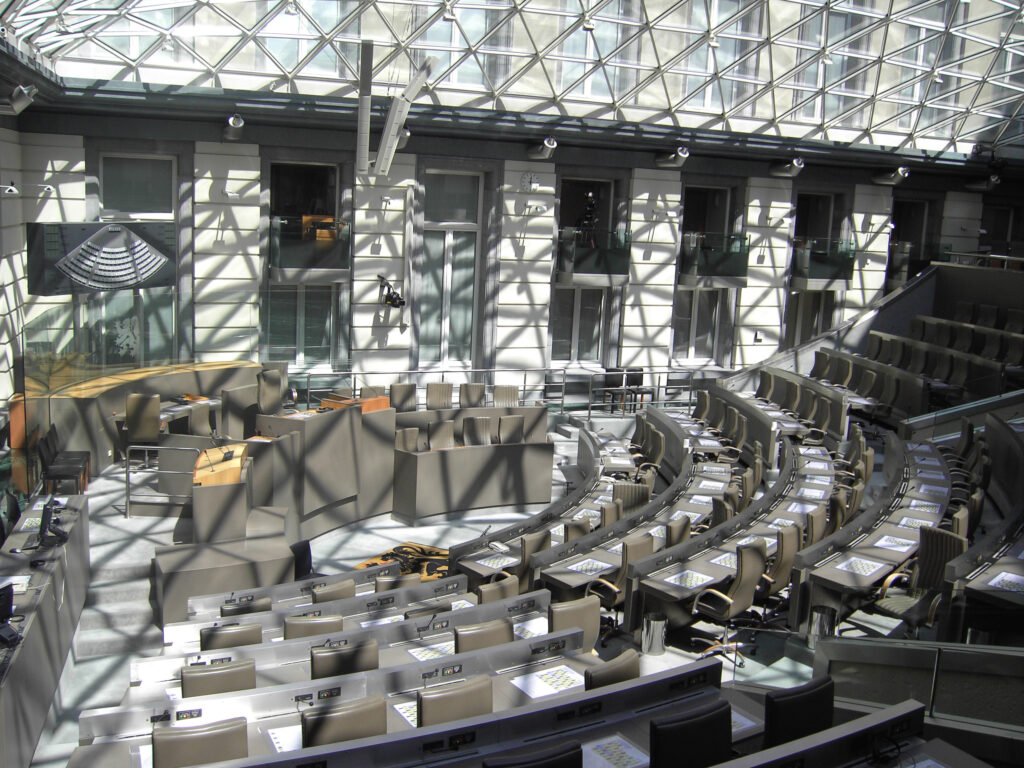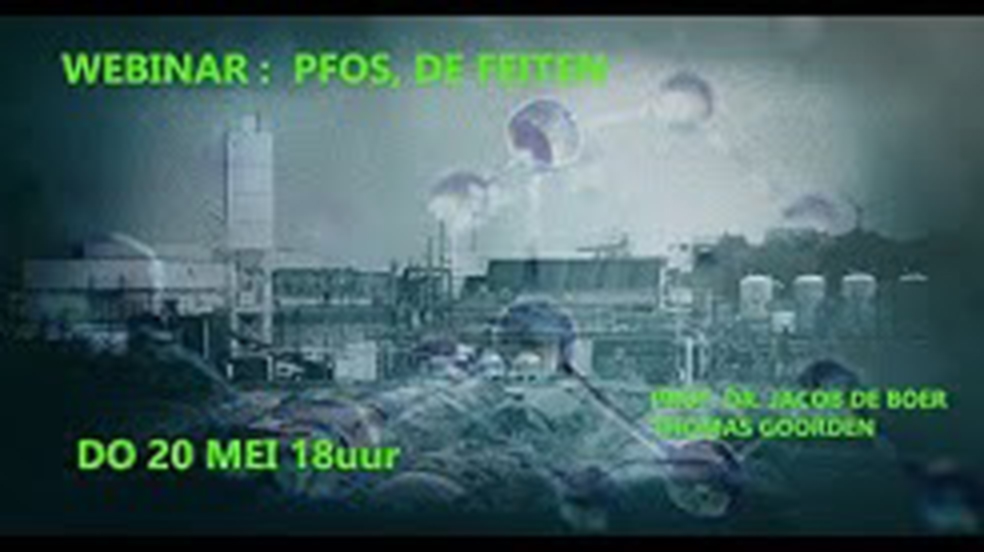28.03.2022 | Grondrecht
In juni 2021 eisten we samen een parlementaire onderzoekscommissie naar de PFOS-vervuiling. Maandag presenteerde die commissie haar finale rapport.
Ondanks erg duidelijke fouten die in het verleden zijn gemaakt, duidde de commissie geen politieke verantwoordelijken aan.
In 2017 werd nochtans beslist om ons niet in te lichten over de PFOS-vervuiling, en om geen verder onderzoek ernaar te starten. De politici die verantwoordelijk waren voor die beslissing, hadden al lang de eer aan zichzelf moeten houden. Dat ze dat niet deden, en dat hun collega’s evenmin die grove fouten benoemen, is onbegrijpelijk.

Tegelijkertijd formuleerde de commissie een hele reeks belangrijke aanbevelingen, waarvan verschillende op voorzet van Grondrecht en partners (o.m. BBL, Greenpeace, Dryade, Thomas Goorden):
- de commissie wil dat meer Vlamingen worden getest op de aanwezigheid van PFAS in hun bloed, en stelt daarom voor om de testcapaciteit nog verder op te drijven. We rekenen erop dat dat betekent dat ook inwoners van groot Antwerpen zich (eindelijk) kunnen laten testen, net zoals voormalige inwoners van hotspots.
- de commissie wil 3M laten betalen voor alle vervuiling. Ze stelt voor dat een fonds wordt opgericht zodat werknemers en omwonenden wiens gezondheid lijdt onder PFAS-vergiftiging, een vergoeding voor hun medische kosten kunnen krijgen.
- de commissie stelt voor om 3M minder PFAS te laten lozen in de omgeving van Zwijndrecht. Indien onze buurlanden strengere lozingsnormen opleggen, moet Vlaanderen hetzelfde doen.
- de commissie stelt voor om te verplichten dat alles wat in de supermarkt ligt moet aangeven of er PFAS in verwerkt zit. De commissie wil er bovendien mee voor ijveren dat niet-essentiële PFAS op termijn verdwijnen.
Er blijven nog verschillende werkpunten op tafel liggen:
- bij alle PFOS-bloedonderzoek moeten gezondheidsklachten van getesten in kaart worden gebracht, onder meer via anamnese. Zo kunnen we nog meer informatie verwerven over de impact van PFOS-vergiftiging.
- er is nog steeds geen zicht op de volledige vervuiling van onze regio. Slechts een klein stukje van de vervuiling rond 3M is in kaart gebracht; in Antwerpen is quasi geen onderzoek verricht.
De vervuiling van grondwater werd zelfs bewust niet meegenomen in het BBO, wat onbegrijpelijk is. - er is na een jaar tijd nog maar amper gesaneerd. De sanering van onze regio moet spoedig maar vooral grondig op gang komen, zodat zoveel mogelijk PFAS uit onze leefomgeving wordt gehaald. Oosterweel mag geen hindernis vormen voor die sanering.
- er moet zicht komen op een schadevergoeding voor al wie getroffen is, inclusief mensen wiens eigendom vervuild is (zoals omwonenden en boeren) en mensen die (nog) niet ziek zijn geworden maar wel hoge PFOS-waarden in hun bloed hebben.
Er moet uiteraard nog heel wat parlementair werk verzet worden vooraleer deze aanbevelingen wet worden.
We werken graag mee aan het uitwerken van die wetgeving. Bij wie mogen we daarvoor aankloppen? Hannes Anaf, Koen Daniels, Chris Janssens, Imade Annouri, Bart Claes, Piet De Bruyn, Stijn De Roo, Gwenny De Vroe, Andries Gryffroy, Joris Nachtergaele, Freya Perdaens, Tinne Rombouts, Mieke Schauvliege, Willem-Frederik Schiltz, Stefaan Sintobin, Jos D’Haese
Opnieuw blijkt dat het werk van Grondrecht loont. Maar om te blijven doen wat we doen, hebben we jouw financiële steun nodig. Stort vandaag nog je bijdrage aan het PFOndS.

Een juridische strijd kost handenvol geld,
je kan ons hierbij steunen via een bijdrage aan het PFOndS.
steun ons in onze juridische strijd

PROJECTPart of: PFOndS Fiscal Host: All For Climate


